THE
PARENT/CHILD
GAME
The Proven Key to a Happier Family
Sue Jenner

Bloomsbury Publishing, London, Berlin and New York
First published in Great Britain in 1999 by Bloomsbury Publishing Plc
36 Soho Square, London, W1D 3QY
This electronic edition published in 2010 by Bloomsbury Publishing Plc
Copyright by Sue Jenner
The moral rights of the author and illustrator have been asserted
All rights reserved
You may not copy, distribute, transmit, reproduce or otherwise
make available this publication (or any part of it) in any form, or by any means
(including without limitation electronic, digital, optical, mechanical, photocopying,
printing, recording or otherwise), without the prior written permission of the
publisher. Any person who does any unauthorised act in relation to this publication
may be liable to criminal prosecution and civil claims for damages
A CIP catalogue record for this book is available from the British Library
ISBN 9781408807750
www.bloomsbury.com/suejenner
Visit www.bloomsbury.com to find out more about our authors and their books
You will find extracts, author interviews, author events and you can sign up for newsletters to be the first to hear about our latest releases and special offers
I should like to dedicate this book to all those with whom I worked for so many years in the Childrens Department of the Maudsley Hospital, London, especially Bill Yule, Stephen Wolkind, Martin Gent, Pia Guidicelli and Stephen Scott. Their support for The Parent/Child Game made my work a positive pleasure. I particularly want to mention Rosemary Hemsley, a colleague who worked tirelessly with children and their families until her death from cancer. She is remembered with much admiration and fondness.
Contents
Acknowledgements
The people who deserve first mention are the children and parents of all the families who were brave enough to trust me, and the Parent/Child Game, with their problems. I know that many felt initially apprehensive, though I am glad to say this did not prevent us from working cooperatively together towards their goal of a happier family life. My heartfelt thanks to every one of you.
I also want to acknowledge the enormously important contribution made to the thorough research and clinical basis of the Parent/Child Game by Professors Rex Forehand, Robert McMahon and Nicholas Long. Without their excellent work I would have been unable to help families in trouble, or indeed to write this book, using the Parent/Child Game.
My deepest gratitude goes to my darling children, stepchildren and grandchildren, for providing the most joyful experiences of my entire life. They also set me some pretty challenging parenting tasks too! I also want to thank my sister and brother, Liz and Jon, for their part in my journey through the various stages of our familys life.
And I would like to say how, without the infinite patience and talents of my cousin and personal assistant Ursula and our friend June, this book would quite simply not have seen the light of day.
Final thanks to Gil McNeil and Alan Wherry, for their inspirational enthusiasm about the Parent/Child Game; and to my partner Geoff for the innumerable cups of tea, tasty snacks and reassurances which he so generously provided throughout my attempt to bring this book to fruition.
Introduction
A Game in Which Everyone Wins
If you are a parent, this book is for you. For the first time, society is now acknowledging that we are not necessarily designed to cope efficiently with the challenges of being a parent and raising children. Alongside the revolutionary notion that parenting is not something you just know how to do, goes the idea that it might involve skills that can be learnt. Recognition that competent which does not have to mean perfect parenting consists of a variety of key abilities allows a lot of important questions to be raised, for instance:
 Just exactly what are the special things parents have to do in order to have children who arent destined to be the Brat from Hell?
Just exactly what are the special things parents have to do in order to have children who arent destined to be the Brat from Hell?
 There must be a secret to it all that I dont know! What is it?
There must be a secret to it all that I dont know! What is it?
 Why cant I get it right even though I love them to bits and try my best?
Why cant I get it right even though I love them to bits and try my best?
When no clear answer materializes, such questions can be followed all too swiftly by feelings of uselessness, overwhelming failure and hopelessness about the future of your parenting efforts.
FROM BIRTH TO THE END
OF ADOLESCENCE
Throughout this book I shall, when using the word child be referring to the whole gamut of development from birth to the end of adolescence.
Parents responsibility for their childrens behaviour is coming increasingly under the microscope in many countries. The British government has considered making parents pay a fine if their children misbehave at school. In the USA the situation varies from state to state, while in Australia and New Zealand the situation is much as it is in the UK. Social attitudes in France ensure that childrens behaviour is clearly acknowledged as the parents responsibility. In the Caribbean, many men father children by several women without settling into a parental role, and as a result it is the mothers who are regarded as being responsible. In parts of India, too, though the government provides money, mothers in particular are seen to be responsible for a childs behaviour via special womens committees.
These attempts to make parents directly responsible for antisocial behaviour on their childrens part have been partially fuelled by certain tragic events involving the murder of children by other children. In Britain, the death of two-and-a-half-year-old Jamie Bulger in 1992 at the hands of two older boys proved a very bitter pill for the public to swallow. Surely, the majority of parents exclaimed, the boys who led Jamie away to his death must have been abnormal, perverted, sick or corrupt.
There have been similar reactions to murders by children in other countries: for instance in 1996 in the USA, when a thirteen-year-old killed several of his classmates. The Caribbean countries are reporting an increase in these shocking events. In New Zealand, on the other hand, murders perpetrated by children are said to be extremely rare though there have been four since 1970. In France it is mainly adolescents who commit such crimes against each other. In southern India, though children murdering others of their own age appears to be almost unknown, they can be involved in family crimes.
So do children who commit such heinous crimes come from pathologically wicked families? No. Sadly, children who kill their peers often come from a certain kind of home which is all too common in countries around the world. I mean the kind of home where parents have little or no idea of how to raise their children to be responsible, considerate, self-confident members of society.
It is now widely accepted, across many societies, cultures, ethnic groups, religions and belief systems, that for the huge numbers of children who experience disordered conduct and emotional problems, this stage is only the beginning. Unless interrupted, the process which might start with biting, kicking and mega-tantrums at three years can in ten lead to delinquency. In twenty years another fully fledged sociopath is likely to be intimidating their partner, ruining their childrens chance of happiness and adding to the worryingly high statistics in violent crime, drug and alcohol addiction, child sex crimes and child protection cases.

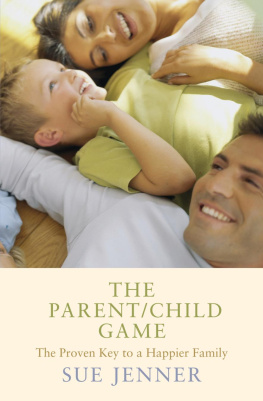
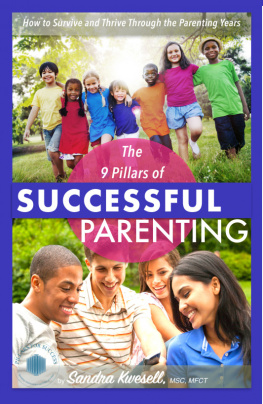
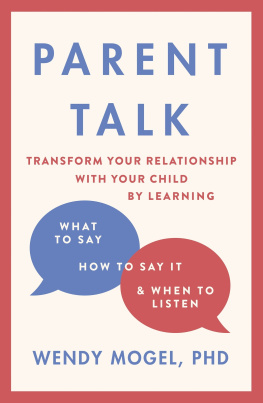
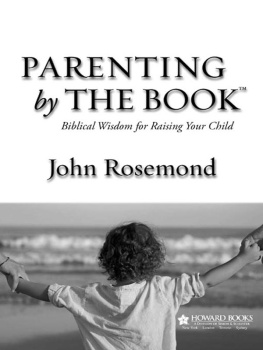

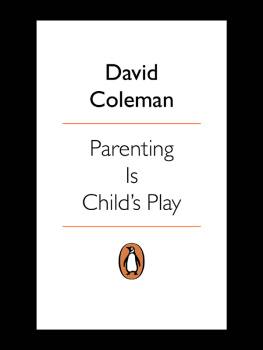
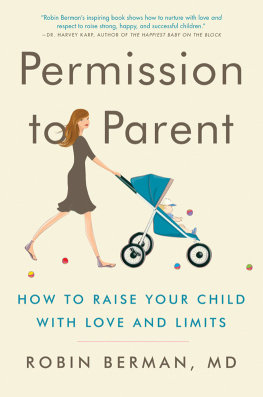
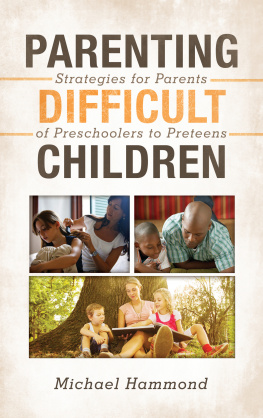
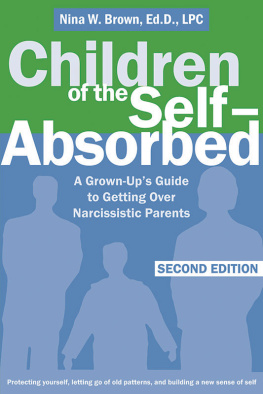
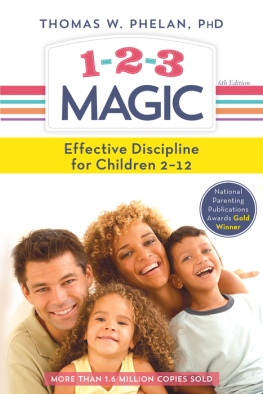


 Just exactly what are the special things parents have to do in order to have children who arent destined to be the Brat from Hell?
Just exactly what are the special things parents have to do in order to have children who arent destined to be the Brat from Hell?